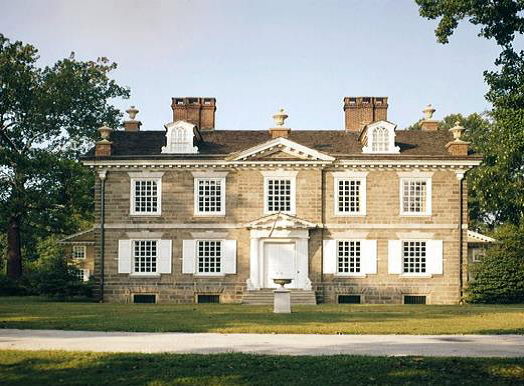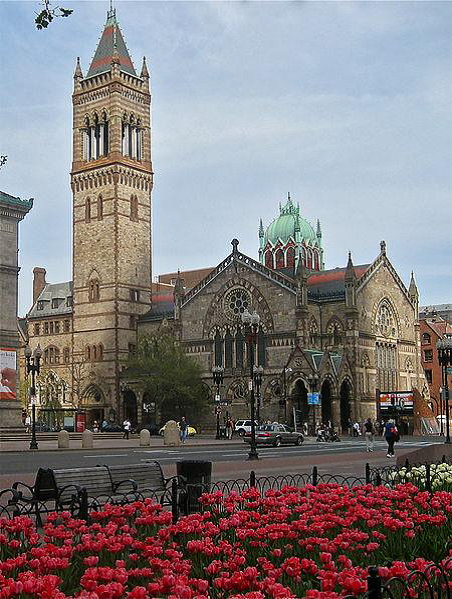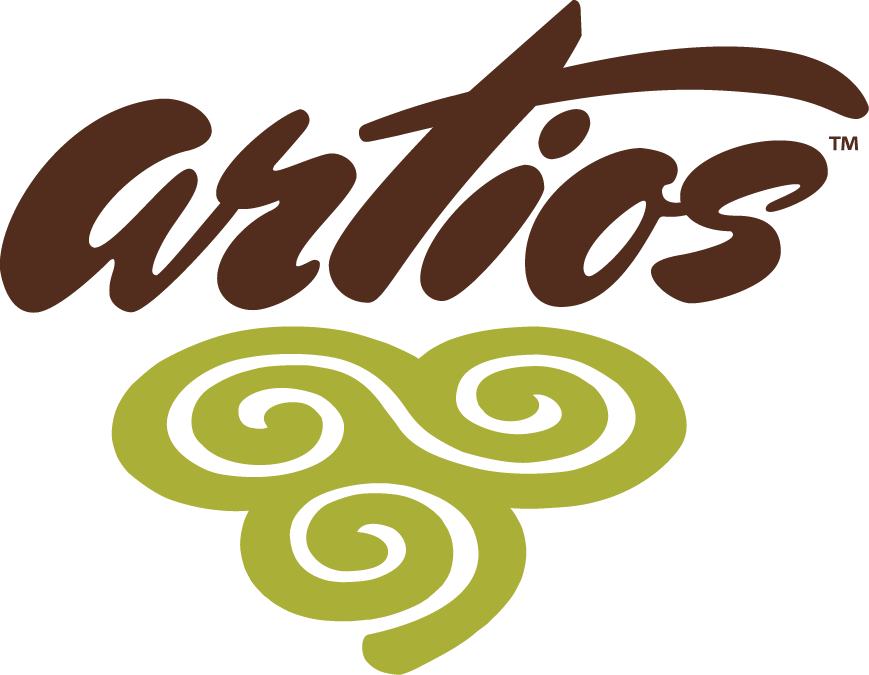[precontent]
[one_third]
Unit 20: Life in the New Nation
[/one_third]
[two_third_last]

[/two_third_last]
[/precontent]
[three_fourth]
[box]
[box_header]
Unit 20 [flag bg_color=”#d6e3bc” text_color=”#9d241a”]Elementary[/flag]
[/box_header]
[box_content]
Unit Overview
- Subjects Covered
- Grammar, Literature, Composition, History
- Time Period
- Reformation and Revolutions
- Grade Level
- Elementary: 1 – 5
- Civilization
- American
- Literature
- Seaman: The Dog Who Explored the West with Lewis and Clark – by Gail Langer Karwaski
[/box_content]
[box_content]
 Unit Description
Unit Description
“The great characteristic of the American people was their power of organization. They were organizing business, and preparing to make use of coming conveniences of intercourse; they were building highways, accumulating capital, and opening up the unrivaled treasure-house of the West. Above all they were organizing towns, counties, and states — if they could also organize a strong national government, nothing could stay their progress as a nation. As an observer said, ‘The American is a new man who acts upon new principles; he must, therefore, entertain new ideas, and form new opinions’… ” – Albert Bushnell
[/box_content]
[box_content]
Leading Ideas and Biblical Principles
[list type=”arrow”]
- God’s providential hand governs and times all events and provides for his Creation according to His plan and purposes.
- The God who made the world and everything in it is the Lord of heaven and earth and does not live in temples built by human hands. And he is not served by human hands, as if he needed anything. Rather, he himself gives everyone life and breath and everything else. From one man he made all the nations, that they should inhabit the whole earth; and he marked out their appointed times in history and the boundaries of their lands. God did this so that they would seek him and perhaps reach out for him and find him, though he is not far from any one of us..- Acts 17:24-27
[/list]
[/box_content]
[/box]
[box]
[box_header]
Unit 20 Resources: [flag bg_color=”#d6e3bc” text_color=”#9d241a”]Elementary[/flag]
[/box_header]
[box_content]
[button id=”1″ link=”https://www.artioshcs.com/wp-content/uploads/2014/01/Early-Mod-Unit-20-Elem-Life-in-the-New-Nation-PRINT-26-WWW.pdf” linking=”new-window” size=”medium” type=”simple” title=”unit”]Download Unit[/button]
[button id=”1″ class=”1″ link=”http://upload.wikimedia.org/wikipedia/commons/thumb/3/38/Viajes_de_colon_en.svg/800px-Viajes_de_colon_en.svg.png” linking=”new-window” size=”medium” type=”simple” title=”maps”]Download Maps[/button]
[button id=”1″ link=”http://www.phschool.com/atschool/ahon/history_interactive/mvl-1021/common_player.html” linking=”new-window” size=”medium” type=”simple” title=”maps”]Interactive Map[/button]
[tabs type=”simple” position=”top-left”]
[tab_title]Lesson 1: History[/tab_title]
[tab_content]
Lesson One Assignments:
- Read the article: The American People from 1780 to 1800, pages 7-13.
- Define each vocabulary word in the context of the reading and put the word and its definition in the vocabulary section of your notebook.
- Please remember that today’s article was written in the early 1900’s.
- After reading the article, summarize the story you read by either:
- ▪ Retelling it out loud to your teacher or parent. OR
- ▪ Completing an appropriate notebook page.
- Be sure to visit www.ArtiosHCS.com for additional resources.
- Either way, be sure to include the answers to the discussion questions and an overview of key people, dates, and events in your summary.
Lesson One Discussion Questions:
- Take each of the headings in today’s reading (newspapers, the postal service, stage coaches, fires, Sundays, ministers and churches, doctors, schools, everyday home life), and make a bullet point outline for each heading showing the important points given in the article. Describe the main difference between newspapers during the time described in today’s article, and modern newspapers.
- Describe the differences between how we currently view Sundays and how Sundays were viewed during the early days of our country.
[/tab_content]
[tab_title]Lesson 2: History[/tab_title]
[tab_content]
Lesson Two Assignments
- Make a chart comparing and contrasting life as described in yesterday’s article and life today.
- Choose Native Americans, women, or African Americans, and research their everyday life during and immediately following the Revolutionary War. Try to use original documents for your research in order to avoid any misinformation.
- Be sure to visit www.ArtiosHCS.com for additional resources.
[/tab_content]
[tab_title]Literature[/tab_title]
[tab_content]
Literature:
- Begin by completing an author profile for Gail Langer Karwaski. You will find an Author Profile Page within the Resources section of the website. You can find information about the author through various Internet sources; but make sure you get a parent’s permission before accessing the Internet.
- Read Chapters 1 – 5 in Seaman: The Dog Who Explored the West with Lewis and Clark.
Composition Assignments:
- Create a Social Media Journal.
- Staple about 10 pages of lined paper between two pieces of plain white paper or colored construction paper
- Create a title on the front cover.
Grammar Assignments:
[/tab_content]
[/tabs]
[/box_content]
[/box]
[box]
[box_content]
[box_header]
Unit 20 Extra Resources: [flag bg_color=”#d6e3bc” text_color=”#9d241a”]Elementary[/flag]
[/box_header]
[tabs type=”simple” position=”top-left”]
[tab_title]Resources[/tab_title]
[tab_content]
VIDEOS ON THIS WEBSITE SHOULD BE PREVIEWED BY PARENTS BEFORE ALLOWING STUDENTS TO WATCH VIDEOS. SOME VIDEOS MAY CONTAIN INFORMATION ON SENSITIVE TOPICS.
Complimentary Resources:
Societal Impacts of the American Revolution
The Economic Impact of the Revolution
Videos:
[/tab_content]
[tab_title]Arts[/tab_title]
[tab_content]
Art:
Music:
Some Composers:
[/tab_content]
[/tabs]
[/box_content]
[/box]

Leave a Reply
Want to join the discussion?Feel free to contribute!